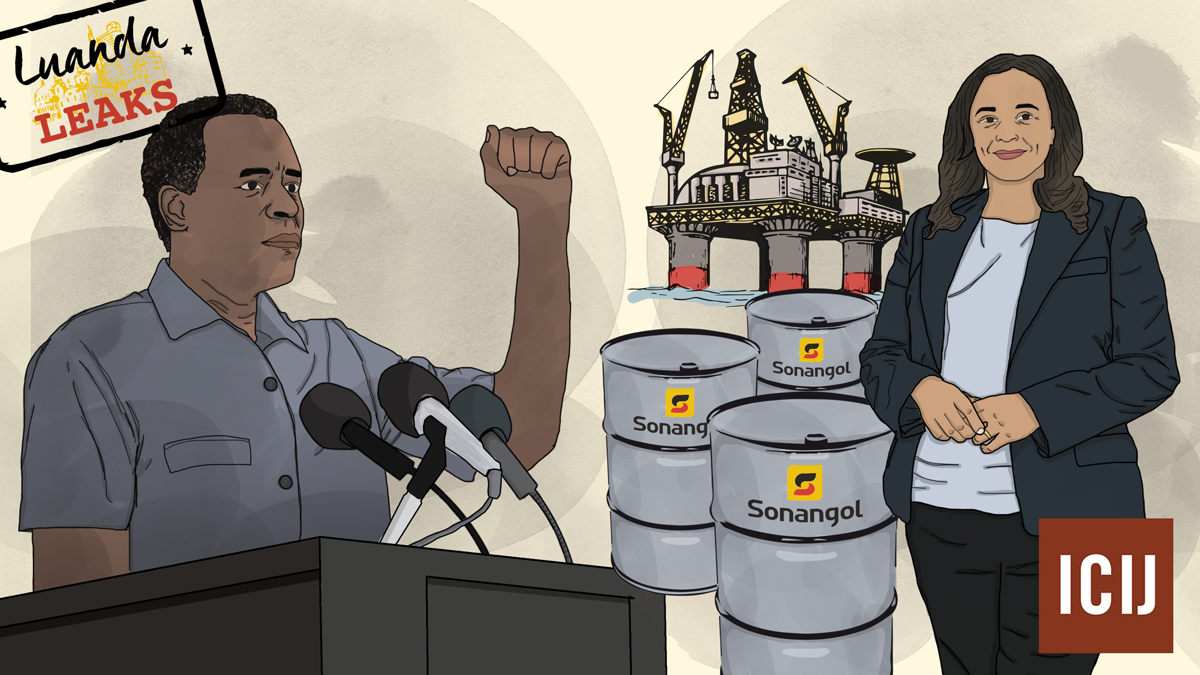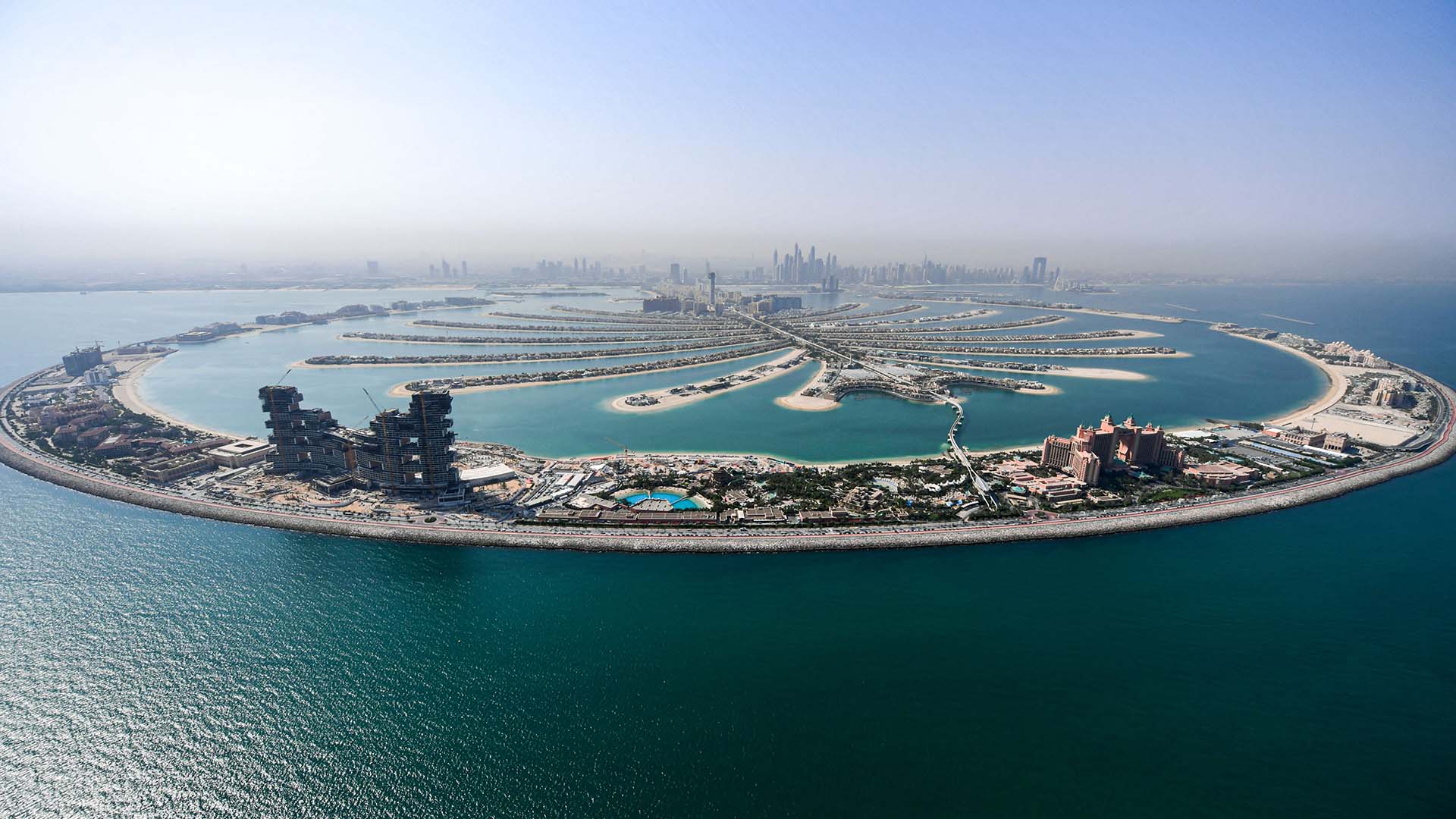Powerful Angolan political figures accused of embezzling billions of dollars can now be linked to at least 20 more secretive companies in the United States and other tax havens, exposing new financial hideaways of the impoverished African country’s former ruling elite.
Isabel dos Santos, the daughter of Angola’s former authoritarian president, José Eduardo dos Santos, as well as former senior presidential advisors and generals, Leopoldino Fragoso do Nascimento and Manuel Hélder Vieira Dias Júnior, owned offshore companies and bank accounts in Europe and the Middle East, leaked records from the Pandora Papers investigation show.
Last month, the United States government sanctioned Isabel dos Santos and the two former generals for what it called “significant corruption.” Under the new measures, dos Santos and members of her family cannot enter the United States.
The State Department also barred Nascimento, President dos Santos’ former head of communications, and Dias, a powerful former Angolan general. The U.S. Treasury Department placed Nascimento, Dias and his wife, Luisa de Fatima Giovetty, under economic sanctions.
“Bringing kleptocrats’ shady deals to light is key to defending human rights,” said Karina Carvalho, executive director of Transparency International in Portugal. “Angola is a resource rich country but the majority of its people live in poverty, prevented from accessing health, education and decent life conditions because of people who take the country’s wealth as their own.”
Two years ago, the International Consortium of Investigative Journalists revealed that Isabel dos Santos, once touted as Africa’s richest woman, built her estimated $2 billion fortune on the back of insider deals with the help of shell companies and an array of Western lawyers, accountants and wealth managers.
The Luanda Leaks investigation showed how dos Santos got access to lucrative deals involving oil, diamonds, telecoms and supermarkets often courtesy of government decrees signed by her father. She also benefited from insider deals, preferential loans and contracts fueled by public money.
Dos Santos said the allegations against her were false.
Close allies of dos Santos’s father, generals Nascimento and Dias are accused by the U.S. of siphoning off public funds for their personal benefit, too. They once held sprawling business interests and have been estimated to be billionaires.
In 2020, Nascimento and Dias voluntarily handed over assets, including residences and factories, as part of an Angolan government probe into alleged fraud and the misuse of state contracts. An attorney for the two generals has previously declined to comment on the case.
The 2021 Pandora Papers investigation, based on a trove of almost 12 million leaked records from offshore service providers based in notorious tax havens, shine new light on the trio’s financial dealings.
Dos Santos did not respond to requests for comment about her offshore companies. Nascimento and Dias could not be reached for comment.
Dos Santos, Nascimento, Dias and members of their families owned or held positions as attorneys, shareholders or directors in at least 20 offshore companies, the leaked Pandora Papers’ records show. The Angolans’ ties to many of the companies have never been previously reported.
In 2008, records show, Nascimento became the owner of Shenyang Investments LLC, a shell company registered in Wilmington, Delaware. The company opened a bank account in Dubai, the United Arab Emirates, according to the Pandora Papers. Public records in Delaware do not refer to the company’s connection to Nascimento or to Angola. The company was closed in 2014, years after media reports raised conflict of interest concerns about Nascimento’s secret stake in a private company that profited from Angola’s immense oil wealth.
As part of the Luanda Leaks investigation, ICIJ previously revealed that dos Santos and her husband, Sindika Dokolo, also owned a Delaware shell company to hold a luxury home in Portugal.
Nascimento, also known as Dino, also owned or was the director of companies set up in the British Virgin Islands and Panama, leaked records show. Several companies opened bank accounts with Banco Espirito Santo, a troubled Portuguese lender with a well-documented history of serving Angolan elites.
Leaked records show that Nascimento also owned Dark Oil Ltd. in partnership with Dias and Manuel Vicente, who was then a government official and head of Angola’s national oil company. During the rule of President dos Santos, the three men were often referred to as the “Presidential Triumvirate.”
In 2007, media reported that Dark Oil Ltd. and Angola’s state-owned oil company, led by Vicente, signed an agreement with a Russian company to explore for oil.
Nascimento, Dias and Vicente “always demonstrated a high degree of integrity and capability”, according to letters of recommendation for the men prepared in 2009 by their wealth managers in Malta.
Dias, the former general and minister who is also known as Kopelipa, owned Tentower Overseas S.A. in Panama and opened a bank account in Portugal, according to the Pandora Papers. Dias’s wife, Giovetty, also owned a Panamanian shell company to open a European bank account, leaked records show.
“The U.S. decision to sanction these three people is an important step in the fight against corruption in Angola, and also in increasing accountability in other jurisdictions, like Portugal, which enable and facilitate illicit financial flows from Angola,” Carvalho said. “But the impact of positive actions like this one will always be limited without a global pact to stop tax havens and the use of shell companies.”




